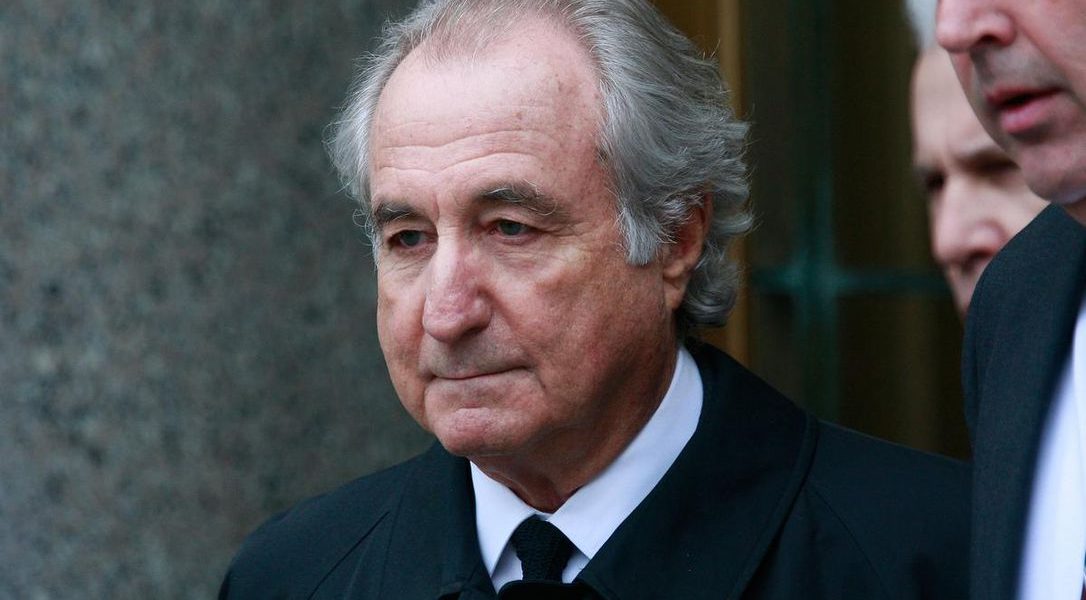This article originally appeared in The Toronto Star
Bernie Madoff, the man who set up and ran the biggest Ponzi scheme fraud in history, has died in a U.S. prison at the age of 82 — 12 years into a 150-year prison sentence.
His fraud was so damaging that it reportedly drove several investors to suicide, caused many divorces and triggered significant and long-lasting hardship for thousands of depositors.
Sympathy for Madoff will be thin on the ground, given that a lot of his victims were pensioners who invested their life savings to improve their retirement prospects. When imposing the 150-year sentence, the judge described Madoff as being “extraordinarily evil.” Fake financial accounts provided to investors laid claim that the Madoff scheme was holding US$60 billion.
The banking crisis of 2008 saw investors trying to claw their money back from Madoff stocks. This run on his assets led to the Ponzi collapsing — and the rest is history. Although $13 billon of the estimated (at least) $17.5 billion of losses was recovered, it still left a huge chunk of investors’ money outstanding.
Madoff told the court at his trial that he was “deeply sorry and ashamed” for his actions. Despite this contrition, he was unable to put right what he had done wrong.
Madoff was a product of Wall Street and a former Nasdaq chairman. He exploited his professional background and reputation, inspiring confidence in those who believed his lies and who were sucked into his web of deceit. As investors began clamouring for their money following the financial crash, he suffered the ignominy of being turned in by his sons, after admitting that the Ponzi scheme was “one big lie.”
One should never speak ill of the dead, but it is unlikely that many tears will be shed by those who fell victim to Madoff’s treachery.
Madoff told the court at his trial that he was “deeply sorry and ashamed” for his actions. Despite this contrition, he was unable to put right what he had done wrong.
Meanwhile, the world’s second largest Ponzi disaster after Madoff has a significant Canadian link. Allen Stanford, currently serving a 110-year prison sentence handed down in the U.S. in 2012, masterminded a $5.5 billion Ponzi scheme via the sale of fake certificates of deposit through his Stanford International Bank based in Antigua.
Stanford was shut down by the U.S. Securities and Exchange Commission in February 2009, three months after Madoff was arrested by the FBI, but not before Stanford had gone on to harm 18,000 people across 141 countries. In contrast to Madoff’s repentance, Stanford told his sentencing judge: “I’m not here to ask for sympathy or forgiveness or to throw myself at your mercy. I did not run a Ponzi scheme. I didn’t defraud anybody.”
One of Stanford’s victims told the court that Stanford was worse than Madoff because he targeted middle-class investors. “He stole more than millions,” the victim said, “he stole our lives as we knew them.”
If you are facing a shortfall in your pension savings, then investing some of those savings would make sense. Sadly, many of the Stanford victims were not experienced investors, and their desire to build a retirement nest egg floundered on his lies.
Toronto-Dominion Bank provided correspondent banking services to Allen Stanford’s Antiguan bank from 1991 to 2009, receiving approximately $10 billion of deposits from the victims of the fraud. TD Bank claims that it did nothing wrong in facilitating the Stanford fraud.
However, a three-month civil trial brought by the liquidators of Stanford International Bank is rapidly coming to its conclusion. The case is being heard by Justice Barbara Conway of the Ontario Superior Court of Justice. In this case, TD Bank is defending itself from a $4.5 billion damages claim for allegedly falling below the standard of care expected of a reasonable bank in facilitating Stanford’s fraud.
He stole more than millions, he stole our lives as we knew them.
There is an argument that some victims of both schemes were themselves guilty of greed. I do not hold to that opinion. There is an old saying that says: if something appears to be too good to be true, then it probably is.
But fraud is not a victimless crime. I’ve had a banker client have a heart attack, and seen others lose careers as a result of fraud. People lose their edge, they lose their confidence, because they’ve been tricked and lost faith in themselves. It’s a deep violation.
The problem in all these cases is not the greed of the investor, but the lies cast by the likes of Madoff and Stanford, and those who would enable them.

